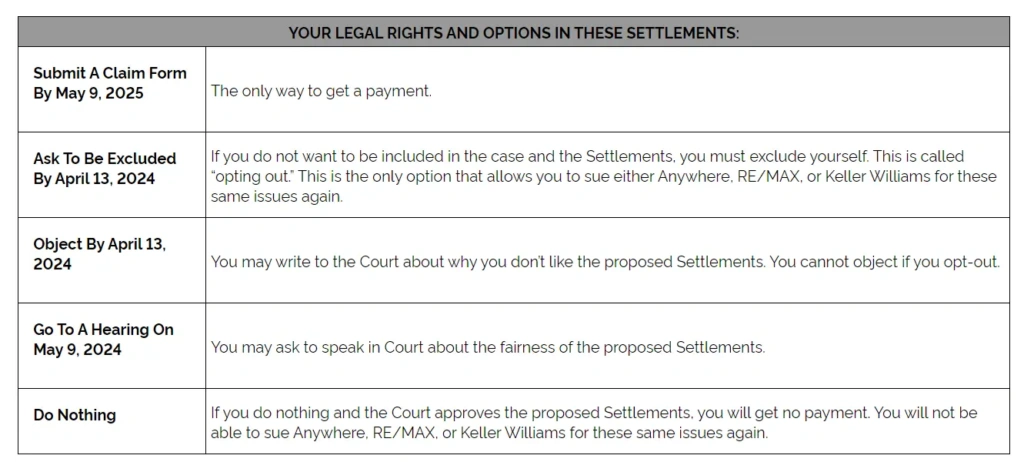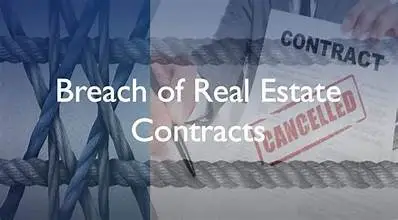Real estate commission litigation encompasses legal disputes arising from commission-related issues in real estate transactions. Understanding this concept involves delving into the intricacies of contractual agreements and legal frameworks governing such disputes. Let’s explore the key terms and definitions to provide a comprehensive understanding.
Defining Real Estate Commission Litigation
Real estate commission litigation refers to legal conflicts arising from disputes over commissions between parties involved in real estate transactions. These disputes often revolve around non-payment of commissions, disagreements over commission amounts, and breaches of contractual agreements.
The Role of Real Estate Agents and Brokers
Real estate agents and brokers facilitate real estate transactions. Their responsibilities include representing clients, marketing properties, negotiating deals, and ensuring compliance with legal requirements. Commissions earned from successful transactions constitute a significant portion of their earnings.
Explaining the Role of Real Estate Agents and Brokers
Real estate agents and brokers are intermediaries between buyers and sellers in real estate transactions. They possess expertise in the local market, guide clients throughout the transaction process, and strive to secure favorable outcomes for their clients.
Their Responsibilities and Duties
Real estate agents and brokers’ responsibilities extend beyond merely facilitating transactions. They are tasked with conducting market research, advertising properties, arranging property viewings, drafting contracts, and negotiating terms on behalf of their clients.
Importance of Commissions in Their Earnings
Commissions serve as the primary source of income for real estate agents and brokers. These professionals typically earn a percentage of the final sale price of a property or a fixed fee for their services. Therefore, disputes over commissions can have significant financial implications for them.
Common Disputes Leading to Litigation
Real estate commission disputes can arise for various reasons, leading to legal action if not resolved amicably. Understanding the common disputes and their underlying causes is crucial for effectively addressing and preventing such conflicts.

Failure to Pay Commission
Disputes can arise when commissions are not paid to real estate agents and brokers despite their efforts to facilitate a successful transaction. Such situations may occur due to disagreements over commission entitlements or non-compliance with contractual obligations.
Situations Where Commissions Are Not Paid
Non-payment of commissions may occur when a transaction fails to close, the parties involved dispute the agent’s role in facilitating the transaction, or there are breaches of contractual agreements governing commission payments.
Legal Implications for Non-Payment
Failure to pay commissions as agreed upon in contractual agreements can have legal repercussions. Real estate agents and brokers may pursue legal action to recover unpaid commissions, including filing lawsuits for breach of contract or seeking arbitration or mediation to resolve disputes.
Disputes Over Commission Amount
Disputes may arise between parties involved in real estate transactions regarding the amount of commission owed to the agent or broker. These disagreements can stem from differences in the interpretation of contractual terms, the extent of services rendered, or the property valuation.
Factors Influencing Commission Disputes
Several factors can influence disputes over commission amounts, including ambiguities in contractual agreements, changes in market conditions, disagreements over the value of services provided, and perceptions of fairness in commission distribution.
Resolving Disagreements Over Commission Rates
Resolving disputes over commission rates often involves negotiation, mediation, or arbitration. Parties may engage in discussions to reach a mutually acceptable resolution or seek third-party intervention to facilitate an impartial decision.
Breach of Contract
Breach of contract occurs when one party fails to fulfill its obligations as stipulated in a contractual agreement. In the context of real estate transactions, breaches of contract can give rise to commission disputes and subsequent litigation if not addressed appropriately.
Types of Contract Breaches in Real Estate Transactions
Contract breaches in real estate transactions can take various forms, including failure to pay commissions as agreed, refusal to fulfill contractual obligations, misrepresentation of property information, and failure to disclose material defects.

Legal Actions Taken in Case of Breach
When a breach of contract occurs in a real estate transaction, the aggrieved party may take legal action to enforce the contract terms and seek remedies for damages incurred. This may involve initiating litigation, pursuing arbitration or mediation, or seeking specific contract performance.
Legal Framework for Commission Disputes
Navigating real estate commission disputes requires a thorough understanding of the legal framework governing such conflicts. Federal and state laws and contractual agreements dictate the rights and obligations of parties involved in real estate transactions.
Overview of Real Estate Laws and Regulations
Real estate transactions are subject to a complex network of laws and regulations at the federal, state, and local levels. These laws govern various aspects of real estate transactions, including property rights, contract formation, disclosure requirements, and commission payments.
Federal Regulations Governing Real Estate Transactions
Federal laws such as the Fair Housing Act, Truth in Lending Act, and Real Estate Settlement Procedures Act (RESPA) impose certain obligations and restrictions on real estate transactions to protect consumers and promote fair and transparent practices.
State-Specific Laws Impacting Commission Disputes
In addition to federal regulations, each state has laws governing real estate transactions. These laws may address licensing requirements for real estate agents and brokers, commission structures, and dispute resolution mechanisms.
Understanding Contractual Agreements
Contractual agreements are central in defining the rights and obligations of parties involved in real estate transactions. Understanding the types of agreements commonly used in real estate transactions and the importance of clear and detailed contracts is essential for avoiding disputes.
Types of Agreements Between Agents, Brokers, and Clients
Various contractual agreements are used in real estate transactions, including listing agreements, buyer representation agreements, and purchase agreements. These agreements outline the terms and conditions of the transaction, including commission arrangements, responsibilities of parties, and dispute resolution procedures.
Importance of Clear and Detailed Contracts
Clear and detailed contracts are essential for minimizing disputes and ensuring that the rights and obligations of all parties are clearly defined. Contracts should specify commission rates, payment terms, scope of services, and resolution procedures to avoid misunderstandings and conflicts.
Steps to Resolve Commission Disputes
Resolving commission disputes requires careful consideration of the underlying issues and adopting appropriate dispute resolution mechanisms. Parties involved in such disputes may explore various avenues for resolving conflicts amicably and efficiently.
Negotiation and Mediation
Negotiation and mediation offer flexible and collaborative approaches to resolving commission disputes outside formal legal proceedings. These methods emphasize open communication, compromise, and mutual agreement to reach a satisfactory resolution for all parties involved.
Importance of Open Communication
Effective communication is essential for successful negotiation and mediation of commission disputes. Parties should openly discuss their concerns, interests, and objectives to identify common ground and explore mutually acceptable solutions.
Benefits of Mediation in Resolving Disputes Amicably
Mediation provides a non-adversarial forum for parties to discuss their grievances and work towards a mutually beneficial outcome with the assistance of a neutral mediator. The informal nature of mediation allows parties to maintain control over the resolution process and preserve their relationships.
Arbitration
Arbitration is a formal dispute resolution process in which parties submit their dispute to a neutral arbitrator for a binding decision. Arbitration offers a faster and more cost-effective alternative to litigation while providing parties with a fair and impartial dispute resolution.
Explanation of Arbitration Process
Arbitration proceedings typically involve presenting evidence, examining witnesses, and submitting arguments by each party before the arbitrator. The arbitrator then evaluates the evidence and issues a final and binding decision, known as an arbitration award, resolving the dispute between the parties.
Pros and Cons of Arbitration Compared to Litigation
Arbitration offers several advantages over traditional litigation, including greater flexibility, confidentiality, and expedited dispute resolution. However, arbitration may lack the formalities and procedural safeguards of litigation, and the arbitrator’s decision is generally not subject to appeal.
Litigation
Litigation is the formal legal process of resolving disputes through the court system. When negotiation, mediation, or arbitration fails to resolve commission disputes, parties may resort to litigation to seek redress and enforce their rights under the law.

When Litigation Becomes Necessary
Litigation may become necessary when parties cannot reach a settlement through alternative dispute resolution methods or when one party refuses to comply with their contractual obligations. Filing a lawsuit initiates the litigation process and allows parties to present their case before a judge or jury.
Steps Involved in Filing a Lawsuit for Commission Disputes
Filing a lawsuit for commission disputes involves several steps, including drafting and filing a complaint, serving the complaint on the defendant, conducting discovery to gather evidence, participating in pre-trial conferences, and presenting arguments and evidence at trial.
Case Studies and Examples
Examining real-life examples of commission disputes provides valuable insights into their complexities and the strategies employed to resolve them. Case studies offer practical lessons and best practices for navigating commission disputes effectively.
Real-Life Examples of Commission Disputes
Real estate commission disputes can arise in various contexts, including disputes between agents and brokers, conflicts between multiple agents involved in a transaction, and disagreements between agents and their clients over commission entitlements.
Successful Resolution Strategies
Successful resolution strategies for commission disputes often involve a combination of negotiation, mediation, arbitration, and litigation tailored to each case’s specific circumstances. Collaborative approaches that prioritize open communication and compromise tend to yield favorable outcomes.
Lessons Learned from Past Cases
Analyzing past cases of commission disputes helps identify common pitfalls, practical strategies, and legal principles applicable to similar situations. Learning from others’ experiences can improve decision-making and conflict-resolution strategies in future disputes.
Preventive Measures to Avoid Litigation
Taking proactive measures to prevent commission disputes is essential for minimizing the risk of costly and time-consuming litigation. Real estate agents, brokers, and clients can implement preventive measures to identify and address potential conflicts early on.
Importance of Preventive Measures
Preventive measures help mitigate the likelihood of commission disputes and promote smoother transactions by clarifying expectations, establishing clear communication channels, and proactively addressing potential sources of conflict.
Tips for Real Estate Agents and Brokers to Minimize Disputes
Real estate agents and brokers can adopt several strategies to minimize the risk of commission disputes, including maintaining detailed records, communicating effectively with clients, educating clients about commission structures, and managing expectations regarding commission payments.
Creating Clear and Enforceable Contracts
Clear and enforceable contracts are essential for reducing ambiguity and preventing misunderstandings leading to commission disputes. Contracts should clearly outline the rights and obligations of all parties, including commission terms, payment schedules, and dispute resolution procedures.
Seeking Legal Assistance
Knowing when to seek legal assistance is crucial for effectively addressing commission disputes and protecting one’s rights. Real estate agents, brokers, and clients should seek guidance from experienced legal counsel when facing complex or contentious commission issues.
When to Involve Legal Counsel
Legal counsel can provide valuable advice and representation in commission disputes. They can offer insights into relevant laws and regulations, assess the strength of one’s case, negotiate settlements, and advocate for the client’s interests in court or arbitration proceedings.
Qualities to Look for in a Real Estate Attorney
Choosing the right real estate attorney is essential for achieving a favorable outcome in commission disputes. Clients should look for attorneys with expertise in real estate law, litigation experience, excellent communication skills, and a track record of success in similar cases.
Costs Associated with Legal Representation
Understanding the costs associated with legal representation is essential for budgeting and decision-making in commission disputes. Depending on the nature and complexity of the case, attorneys may charge fees based on hourly rates, flat fees, or contingency arrangements.
Recent Trends and Developments
Keeping abreast of recent trends and developments in real estate commission litigation is essential for staying informed about changes in laws, regulations, and industry practices that may impact commission disputes.
Emerging Trends in Real Estate Commission Litigation

Recent trends in real estate commission litigation include increased use of technology in dispute resolution, changes in consumer preferences and behavior, and evolving regulatory frameworks governing real estate transactions.
Impact of Technology on Dispute Resolution
Advancements in technology, such as online dispute resolution platforms, electronic signatures, and virtual mediation tools, have streamlined the dispute resolution process and made it more accessible and efficient for parties involved in commission disputes.
Legislative Changes Affecting Commission Disputes
Changes in legislation and regulations at the federal, state, and local levels can significantly impact commission disputes. Real estate professionals should stay informed about legislative developments and adapt their practices accordingly to comply with new requirements.
People Mostly Asked Questions
Here are a few important questions related real estate commission litigation
What are some specific legal repercussions for failing to pay commissions?
Failing to pay commissions in real estate transactions can result in legal consequences such as breach of contract claims, civil lawsuits, arbitration or mediation proceedings, license suspension or revocation, reimbursement of legal costs, and damage to one’s professional reputation.
What are the possible outcomes of real estate commission litigation?
In cases of real estate commission disputes, there are several potential outcomes. These include a judgment in favor of the plaintiff, settlement, arbitration award, dismissal, default judgment, injunctive relief, and counterclaims. According to the National Association of Realtors, around 60% of commission disputes are resolved through mediation or negotiation, while only 20% proceed to litigation.
What are the legal repercussions for non-payment of commissions in real estate transactions?
It is important to pay commissions in real estate transactions to avoid legal consequences such as breach of contract claims, civil lawsuits, arbitration or mediation proceedings, license suspension or revocation, reimbursement of legal costs, and damage to professional reputation. Based on data from the National Association of Realtors, commission disputes make up approximately 22% of legal issues faced by real estate professionals.
Conclusion
In conclusion, real estate commission litigation encompasses various legal disputes arising from commission-related issues in real estate transactions. Understanding the complexities of commission disputes, the legal frameworks governing them, and practical strategies for resolution is essential for real estate professionals and clients alike. By proactively addressing potential sources of conflict, seeking legal guidance when needed, and staying informed about recent trends and developments, parties can minimize the risk of commission disputes and ensure smoother and more successful transactions in the real estate industry.
Upcoming Topic: What Are Entitlements in Real Estate?



